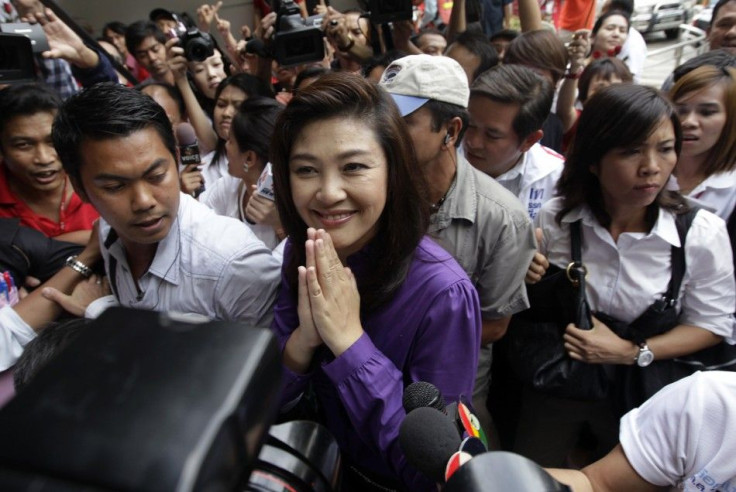Yingluck is in, but is a Coup on the Way?

Yingluck Shinawatra is poised to be the first female prime minister of Thailand, but the first signs of a coup d'état have already arrived.
Thailand's history overflows with unrest, and there have been more coups than there have been full-term premiers.
The Election Commission of Thailand on Tuesday chose not to verify the results of the July 4 election of Yingluck, claiming that there are reports of electoral fraud that need to be investigated.
According to the commission, active members of Yingluck's Pheu Thai party included people who had been banned from Thai politics. This allegation is somewhat correct: Pheu Thai was formed by Thaksin Shinawatra, Yingluck's older brother, himself an overthrown Prime Minister of Thailand, but Thaksin's involvement in the elections has not been confirmed.
While the commission's investigation seems like a productive protection of justice, historically, such an investigation is a first step toward a shift in power. Voiding the elections, which were considered fair by the international community, would severely damage Yingluck's hopes of actually reaching the office as planned.
Although officially an independent body, the Election Commission is nonetheless linked to the Constitutional Court of Thailand, which is charged with detemining the constitutionality of all parliamentary acts. Run by Thailand's monarchy, the Constitutional Court has impeachment powers, a tool it has used on many occasions. Two of the last four Thai Prime Ministers were removed by the court.
Ousting Yingluck would not come as much of a surprise.
Although they have a large following, Pheu Thai and Thaksin are unpopular with Thailand's powerful military. During the election, the head of Thailand's royal army was accused of siding against Pheu Thai, as it has done in the past. There is talk in Thailand, that Yingluck will hand power back to her exiled brother, a move which would be popular among some of the Thai public, but highly unpopular witj others.
Army chief Prayuth Chan-ocha was instrumental in the 2006 coup that exiled Thaksin, and there is speculation that Prayuth would do it again given the chance.
The army sees Thaksin as an enemy of the monarchy, a serious offense in Thailand.
Since 1932, Thailand has had 27 prime ministers over a period of 78 years, excluding interim leaders (of which there were many). Of those 27, only Thaksin and Yingluck's competitor Abhisit Vejjajiva have completed full terms. Although many served multiple terms in office, all of the other prime ministers either resigned, were forced out by the Constitutional Court, died or were overthrown by a military coup.
Thailand would benefit from a stable government, but the many committees and judicial parties are too happy to intervene. Whatever the result of the electoral investigation, there will be civic unrest in Thailand. Thaksin and Yingluck are too controversial in a country that jumps at any loud noise. For Thailand's sake, hopefully the investigation is just an investigation, and nothing more.
© Copyright IBTimes 2025. All rights reserved.





















